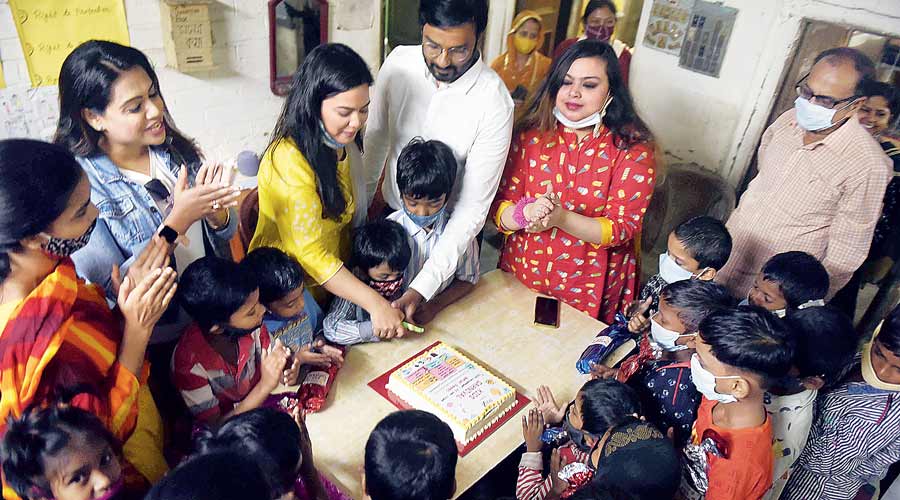Ruhina Khatun collects empty wrappers of potato wafers with her mother, a ragpicker, almost every day.
On Monday, she had scores of sealed chips packets to eat from.
The 14-year-old was among 55 children who took part in a carnival on the first working day of the week.
The children live in shanties along the railway tracks in Park Circus and nearby slums of south and southeast Kolkata. Their parents are mostly ragpickers and daily wage earners.
The venue of the carnival was a shelter home, run by Tiljala SHED, an NGO that works with ragpickers in Park Circus, Tiljala, Topsia and Rajabazar. The carnival was organised in the run-up to Children’s Day on November 14.
The kids, aged five to 14, took part in several games. While the younger lot played musical chairs and passing the pillow, dumb charade was a huge draw for the older children. The younger children got toys as gifts.
The highlight of the carnival was mutton biryani. Chips, chocolates and soft drinks were also served to the children.
“The parents of these children are mostly ragpickers or daily wage earners. The pandemic took away their already paltry income. They survived the past 20 months on dry ration provided by NGOs and community kitchens,” said Shafkat Alam of Tiljala SHED.
The food and gifts were provided by a private sponsor.
Noorjahan Biwi, who lives near the Park Circus station, had sent two of her three girls to the carnival. Ruhina is her eldest child.
They leave home before sunrise to scavenge the streets for bottles, broken furniture, paper, carry bags, iron scrap and other things thrown away. They return home after a few hours to segregate the collection.
Once or twice a week, they sell the scrap to dealers in their neighbourhood. For a kilogram, plastic bottles fetch Rs 12 and paper Rs 2, said Noorjahan, who makes around Rs 1,200 a month.
“March to August last year was like a nightmare because the streets were empty during the lockdown,” said Amina Khatun, another ragpicker.
Crowded streets mean more litter and more litter means more opportunities for ragpickers. The lockdown triggered by the pandemic last year and the prolonged suspension of local trains, both in 2020 and 2021, have hit them hard.
Their earnings have taken a hit since 2012-13 when the Kolkata Municipal Corporation introduced compactor stations.
But even now, more than 20,000 unregistered ragpickers collect around 500 tonnes of garbage, mainly dry and recyclable items, in the city and surrounding areas every day.
